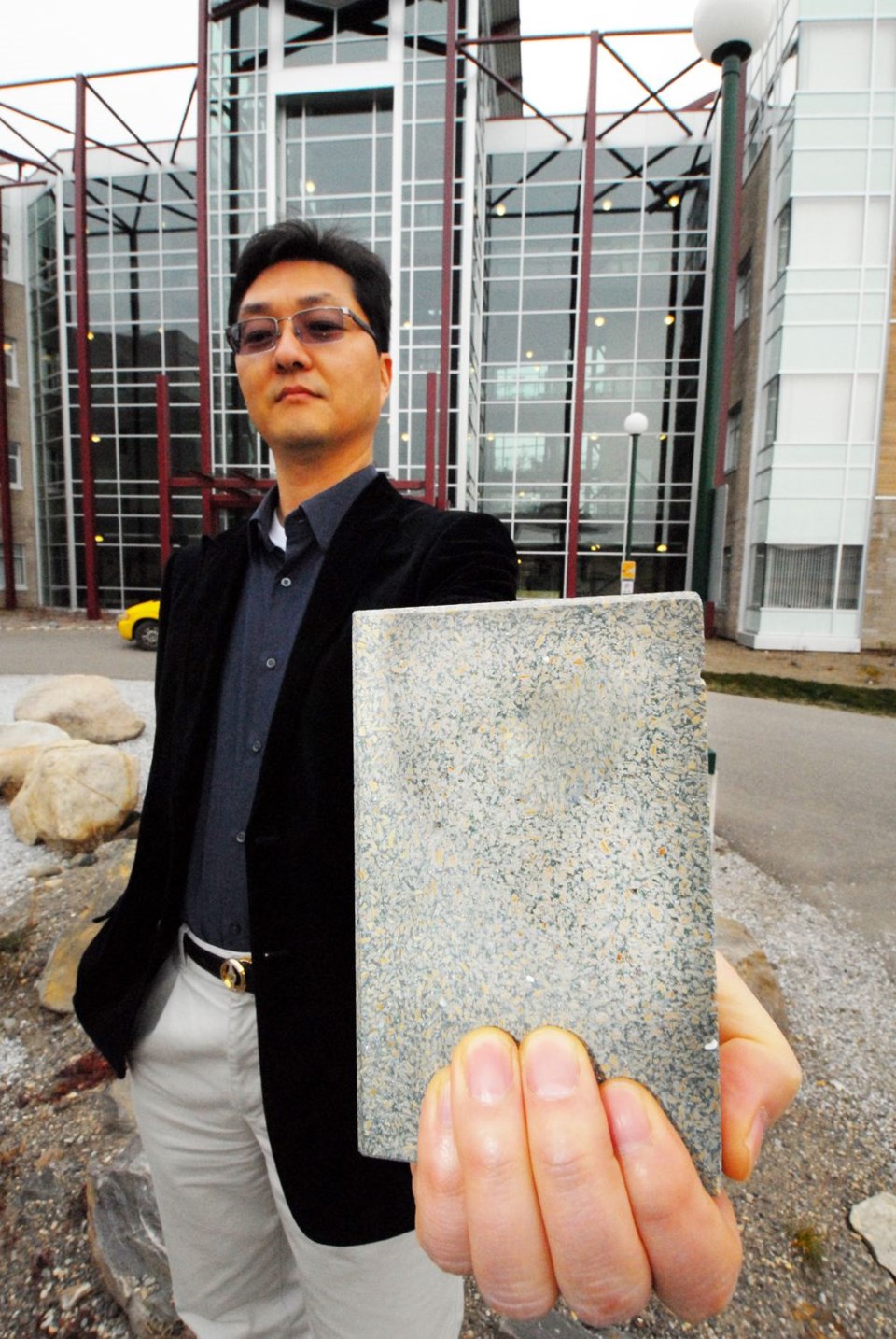Consumers are willing to spend more for products that help the local economy and are produced using methods that are good for the environment, a UNBC research study has found.
And that could help open the door to a huge market for products made with mountain pine beetle-killed wood.
Using "beetlecrete" tiles as an example of a useable building product made from our region's abundant supply of pine beetle-killed trees, UNBC business professors Sungchol Choi and Alex Ng identified a nonexistent Prince George-based company as the manufacturer of one of the types of floor tiles used in their hypothetical study.
A marketing research company was hired to gather focus groups in Prince George, Vancouver and Los Angeles to determine what their preferences would be when shopping for floor titles. The beetlecrete tiles were studied alongside comparable samples obtained from Home Depot.
Survey participants were also shown a two-minute video that explained some of the environmental impacts of the mountain pine beetle infestation that ravaged forests in the Interior over the past decade, killing a large percentage of pine trees.
Before they offered their ratings, survey participants learned details of each tile manufacturer that revealed it either had the best or worst environmental record in the industry, the best or worst chances of local economic sustainability, and either the highest or lowest price for the tiles. Using those three variables, 10 different scenarios were created and the test subjects then made their choices.
"It's common practice for companies to offer higher-priced products that are 'green' or 'sustainable' in response to the environmental concerns of consumers," said Choi. "We found that not only do customers respond favourably to products offering environmental sustainability but also to those perceived to help the local economy.
"Customers are hesitant to pay even a low price for a product from a company with a poor record of sustainability in either respect."
The study was published in the December issue of the Journal of Business Ethics. Choi said he hopes companies will learn from the research findings and that will lead to future use of products made with beetle-killed wood. Based on the feedback of the focus groups, who studied several different samples of beetlecrete products, floor tiles, countertops and garden blocks were identified as having the greatest potential appeal to consumers.
"From a [manufacturers] perspective, when you develop and advertise a new product you should focus on sustainability issues, to let consumers know," said Choi. "On the development side, based on this progress, we hope many manufacturers will invest and develop this [beetlecrete] product."
Because beetlecrete is an experimental product created in 2007 by UNBC masters student Sorin Pasca, a graduate of the natural resources and environmental studies program, and Ian Hartley, UNBC's associate dean of graduate programs, it is still considered an intellectual property of the university and Choi said it is not yet being marketed.
"I found some manufacturers interested in putting in money to develop a product but the intellectual property issue still needs to be resolved," said Choi.



